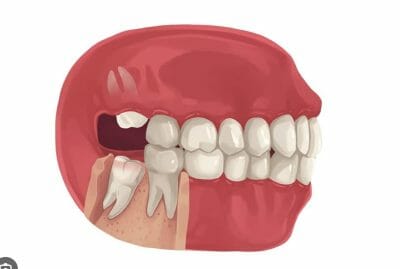Wisdom teeth, also known as third molars, are the final set of molars that typically emerge in the late teens or early twenties. While these teeth can be beneficial in some cases, they often cause more harm than good due to issues like impaction, crowding, and misalignment. As a result, many individuals opt for wisdom teeth removal surgery to prevent potential oral health problems. If you’re gearing up for this procedure, it’s important to be prepared not only for the surgery itself but also for the recovery process, including managing the inevitable pain that follows.
How to Prepare for Wisdom Teeth Removal Surgery?
Before undergoing wisdom teeth removal surgery, it’s important to be well-prepared to ensure a smooth process and a quicker recovery. Here are some steps to consider:
- Consultation: Schedule a consultation with your oral surgeon to discuss the procedure, potential complications, and any concerns you may have. This is the time to ask questions and understand what to expect.
- Pre-operative Instructions: Follow any pre-operative instructions provided by your oral surgeon. These include dietary restrictions, fasting before the surgery, and avoiding certain medications that could interfere with the procedure.
- Arrange Transportation: You’ll likely be under the influence of anesthesia during the surgery, so make sure to arrange for someone to drive you to and from the appointment.
- Recovery Space: Set up a comfortable recovery space at home. Stock up on soft foods, cold packs, extra pillows, and entertainment to keep you occupied during your recovery.
How to Manage Pain After Wisdom Teeth Removal
After the surgery, managing pain is a crucial aspect of recovery. Here’s how to effectively handle the discomfort:
Follow Post-operative Instructions: Your oral surgeon will provide specific post-operative instructions. Follow these closely, including guidelines on cleaning the surgical site, taking medications, and managing swelling.
Pain Medications: Over-the-counter pain relievers or prescription medications provided by your surgeon can help manage pain. Take them as directed to ensure consistent relief.
Cold Compress: Applying a cold compress to the outside of your cheek can help reduce swelling and numb the area, providing relief from pain.
Rest and Elevate: Give your body ample time to heal by resting and avoiding strenuous activities. Elevating your head while sleeping can also help minimize swelling.
Soft Diet: Stick to a soft diet to prevent further irritation to the surgical site. Soups, yogurt, mashed potatoes, and smoothies are good options.
Oral Hygiene: Keep your mouth clean by following your surgeon’s instructions for oral hygiene. Gently rinse your mouth with warm salt water to prevent infection and aid in healing.
Avoid Certain Habits: Avoid smoking, drinking through straws, and consuming alcohol during your recovery period, as these can hinder the healing process.
Stay Hydrated: Drink plenty of fluids, but avoid using straws. Staying hydrated can aid in the healing process and prevent complications.
Distraction: Engage in activities that take your mind off the discomfort, such as watching movies, reading, or listening to music.
Conclusion
In conclusion, wisdom teeth removal surgery is a common procedure that many individuals undergo to prevent oral health complications. While pain is a natural part of recovery, following the right steps can make it more manageable. Preparing adequately for the surgery and adhering to post-operative instructions can ensure a smoother and more comfortable recovery journey. Remember that if you have any concerns or experience severe pain, it’s crucial to reach out to your oral surgeon for guidance. You’ll be on your way to a healthier and pain-free smile with proper care and attention.
